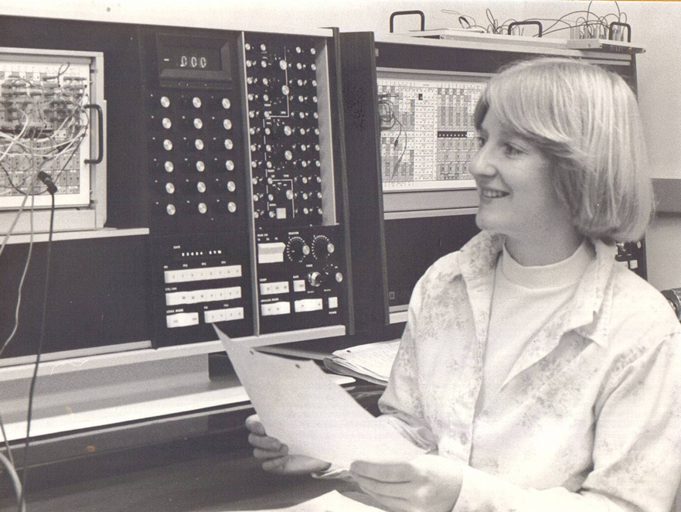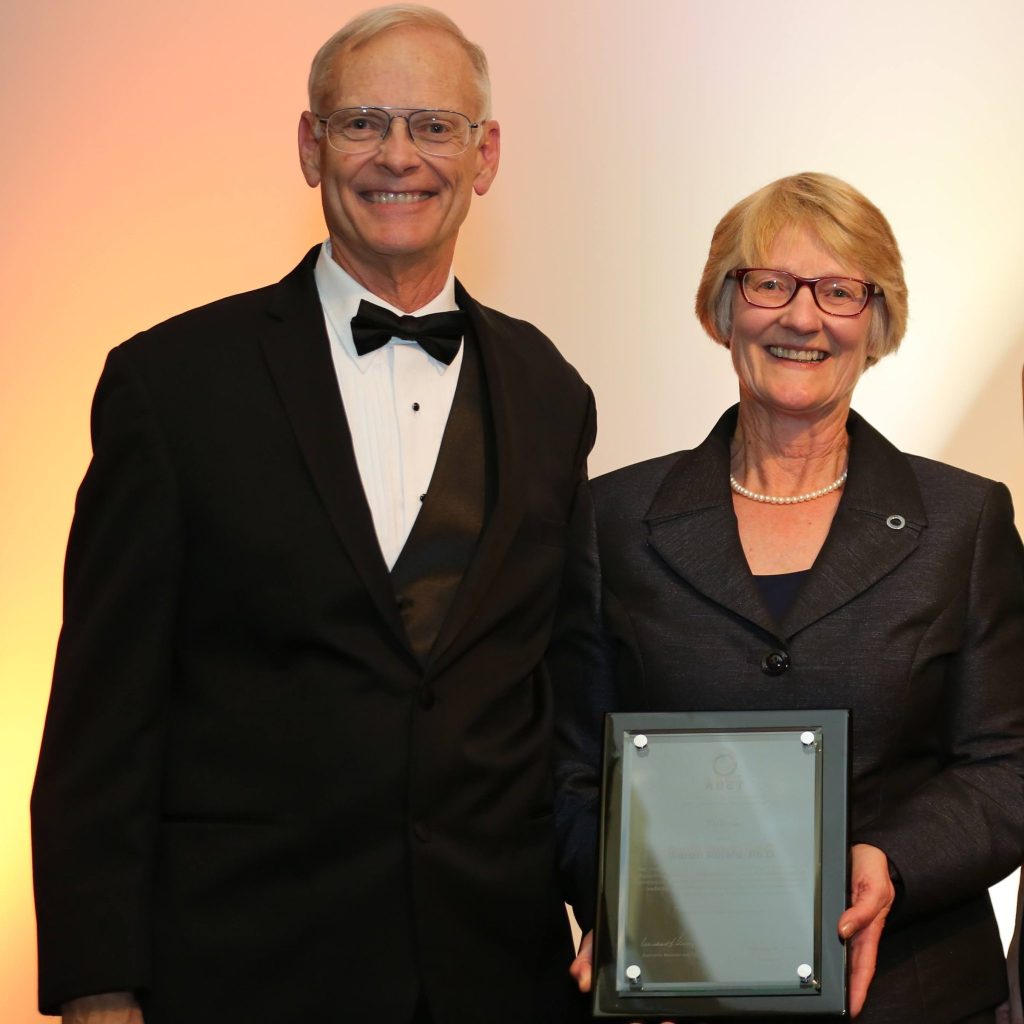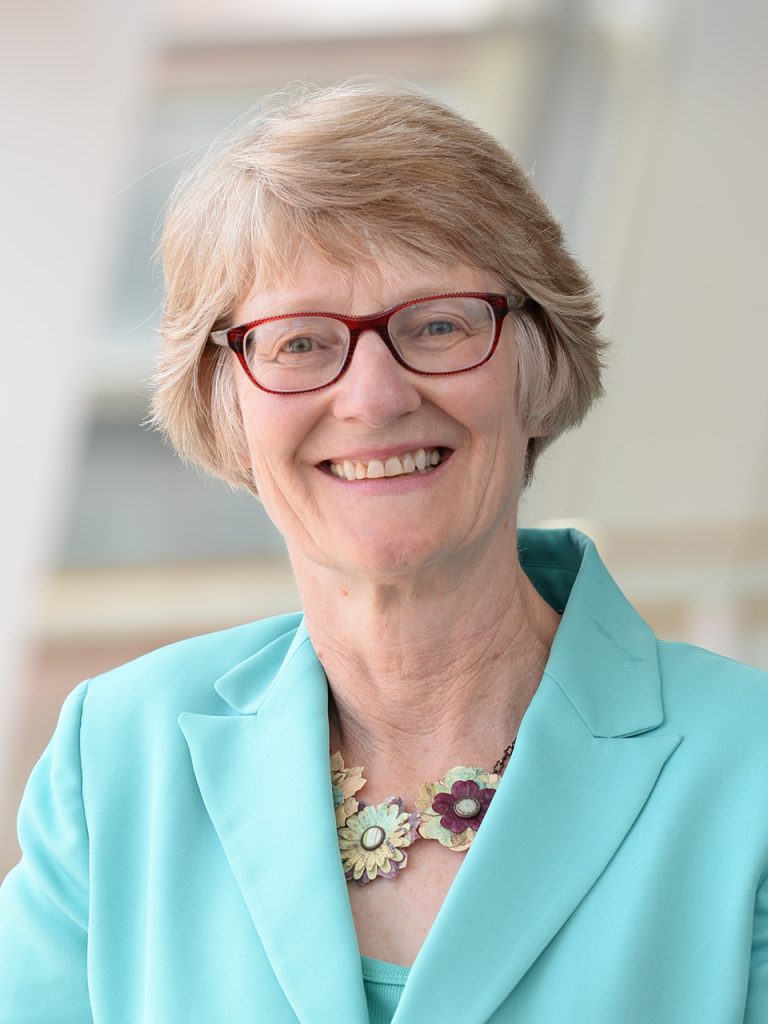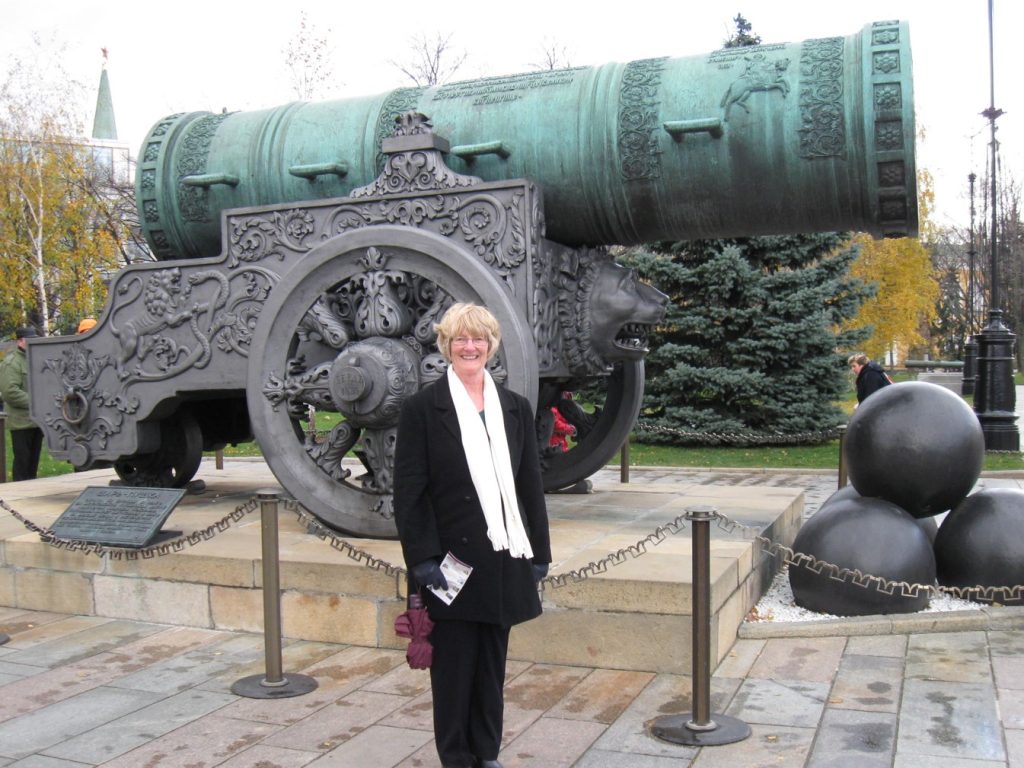Dr. Sarah Rajala has dedicated her career to fostering inclusive environments where all voices are not only heard but valued at every level. Through her ascent to leadership roles in both professional and volunteer capacities, Rajala has been steadfast in her commitment to breaking down barriers and ensuring that historically marginalized groups, particularly women, have a seat at the table in vital discussions. Her unwavering advocacy has paved the way for future generations, leaving an indelible mark on the landscape of equality in both academia and beyond.
While pursuing her bachelor’s degree in electrical engineering at Michigan Technological University (Michigan Tech), Rajala found herself as the sole woman in her class in the electrical engineering program. It was these formative experiences that ignited her passion for advocating for women in Science, Technology, Engineering and Mathematics (STEM), a commitment she carried through her career in academia and volunteer endeavors. Rajala went on to earn a master’s degree and a doctorate degree in electrical engineering at Rice University.
Rajala has forged an illustrious path in STEM, marked by her leadership and dedication. In 2022, she was elected to the National Academy of Engineering, one of the highest professional recognitions in engineering. Rajala earned the Sharon Keillor Award for Women in Engineering Education from the American Society for Engineering Education (ASEE) in 2020. She received the 2015 Harriett B. Rigas Award from the Institute of Electrical and Electronics Engineers (IEEE) in addition to the 2017 Meritorious Achievement Award in Accreditation Activities from the IEEE Educational Activities Board. She is a fellow of AAAS, ABET, ASEE and IEEE.
Breaking Barriers in Electrical Engineering
Rajala faced numerous challenges in her journey into electrical engineering. Despite being the sole woman in her class at Michigan Tech in the 1970s, she persisted, driven by her passion for the field. Encouraged by a faculty member, she transitioned from a math major, defying stereotypes and facing resistance from both faculty and peers. However, Rajala’s rural upbringing instilled in her a tenacity to overcome obstacles, leading her to pursue multiple graduate degrees in electrical engineering from Rice University.
Reflecting on her journey, Rajala recalled, “Girls did not become engineers. It wasn’t a very welcoming environment in those days.” Despite the discouragement, her determination only grew stronger. Drawing from her experiences on the family farm, where challenges were part of daily life, Rajala tackled engineering hurdles with grit and resilience. Her parents, though unfamiliar with the field, supported her pursuit of higher education, providing a solid foundation for her ambitions.

Armed with her degrees, Rajala’s career thrived as she explored the intersection of engineering and medicine. She delved into biomedical engineering, fueled by a desire to impact healthcare. Through internships and further education, she discovered her passion for teaching and research, ultimately shaping her leadership approach today. Rajala’s journey exemplifies the transformative power of perseverance and serves as an inspiration for aspiring engineers, particularly women, to overcome barriers in the field.
Championing Inclusivity in Engineering Education
Rajala’s commitment to diversity in engineering education began early in her career at North Carolina State University. As the first female faculty member in her department, she recognized the need for initiatives to support underrepresented groups. Alongside Dr. Laura Bottomley, Rajala launched the Women in Engineering Program, addressing the gap in formalized support for women pursuing engineering degrees.
Reflecting on her efforts, Rajala noted, “We were both very committed to thinking about ways not only to grow the diversity of the population but also to change the way faculty approach teaching and learning and lead to positive changes for all students.” The program at NC State focused on engaging women and underrepresented minorities in STEM disciplines from their first year, fostering a sense of belonging and community among students.

Transitioning to Mississippi State University (MSU), Rajala noticed a lack of exposure to engineering among young people in the state. In response, she initiated the Diversity and Inclusion Advisory Council, developing strategies to promote diversity and ensure the success of engineering students. Under her leadership, MSU implemented transition programs and revamped the first-year engineering experience to better support students from diverse backgrounds.
Furthermore, Rajala emphasized the importance of institutional policies that recognize and reward diverse faculty contributions. At Iowa State University, she supported efforts to define clear criteria for faculty evaluation, empowering faculty and promoting diversity in academia.
In addition to program development and policy advocacy, Rajala’s research and pedagogical approach intersected with her commitment to supporting diverse student groups. Transitioning her research focus to engineering education in the early 1990s, she delved into outcomes-based assessment and pedagogical strategies aimed at making engineering curricula more inclusive and hands-on. Her engagement in accreditation processes further emphasized the importance of delivering high-quality education while meeting standards. Rajala’s multifaceted approach underscores her dedication to fostering diversity and excellence in engineering education at all levels.
Advancing Diversity, Equity and Inclusion Through Volunteer Efforts
Rajala’s dedication to promoting diversity, equity and inclusion in STEM extends beyond her professional career into her volunteer work. She collaborates only with organizations that share her values, ensuring her efforts align with her commitment to fostering diverse and inclusive environments.
As president of ASEE in 2008-2009, Rajala made significant strides by establishing the organization’s first diversity committee. Looking ahead to her upcoming service as president for ABET in the 2024-2025 term, she remains committed to advancing diversity, equity and inclusion in STEM education and the workforce.
“How do we bring everyone to the table and expand who we have at the table?” Rajala asked. “That’s an important part of the conversation in terms of our professional societies. How do we engage everyone who wants to contribute in a meaningful way and align with ABET’s mission, vision and goals?”
As she assumes her role as president, Rajala is committed to amplifying all voices to ensure every student receives the highest quality STEM education, regardless of gender, background or learning style. By embracing diverse perspectives, she believes ABET can continue its mission of building a better world.
Rajala’s experiences and dedication to diversity, equity and inclusion have prepared her to lead ABET forward in its mission. Her commitment to fostering inclusivity and excellence in STEM education will undoubtedly shape the organization’s future initiatives and impact.

